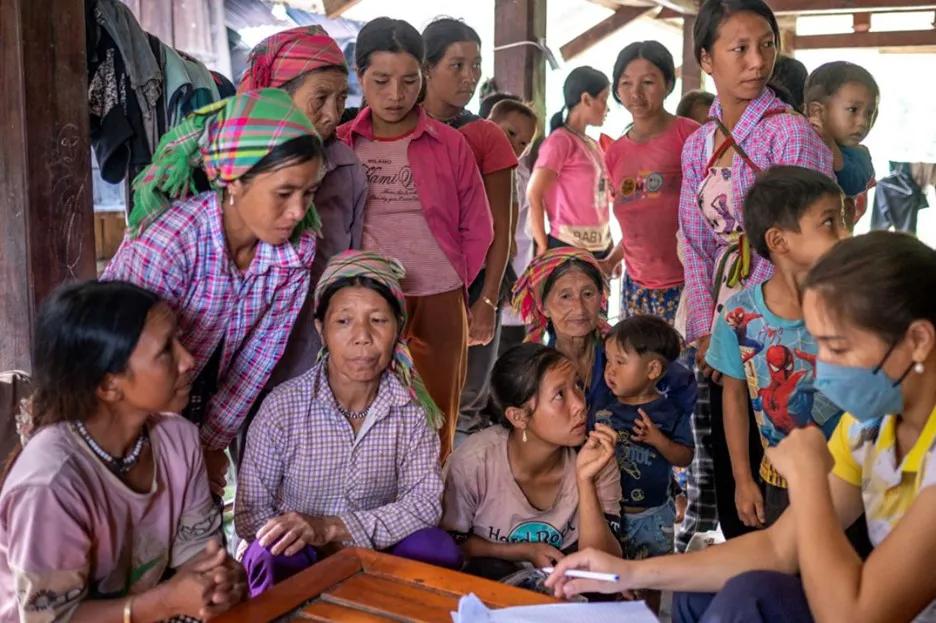Vietnam encouraged to eliminate malaria
WHO encourages last-mile effort in Vietnam’s historic fight towards zero malaria.
The World Health Organization (WHO) is encouraging government agencies, partners, and at-risk communities to build on the great progress achieved over the past few decades to achieve the elimination of malaria in Vietnam within the next few years.
| Health worker Ly Thi Nhieu collects data from villagers undergoing malaria rapid diagnostic tests. Photo: L.Pham/WHO |
WHO’s Representative in Vietnam Dr Angela Pratt urged continued focus to ‘finish the job’ so Vietnam can achieve zero malaria thanks to the country’s significant achievements over the past thirty years.
On World Malaria Day 2023, with the theme "Time to deliver zero malaria: invest, innovate, implement", Dr Pratt said Vietnam has a lot to celebrate. Thirty years ago, Vietnam recorded over one million cases of malaria each year. Last year, that figure dropped to 455. “That is remarkable progress,” she noted.
“This success can be attributed to strong leadership at all levels of government, including the National Malaria Control Program, which has been supported and funded by the government since its inception in the early 1990s,” Dr Pratt said.
Vietnam has a strong system for preventing and controlling malaria with the North, South, and Central regions each having an Institute of Malariology, Parasitology, and Entomology, which collaborate effectively with provincial, district, and commune focal points. In addition, a successful cross-sectoral approach has been taken by the Vietnamese government. This has included the military medical department of the Vietnam People’s Army playing an essential role in the fight against malaria in border regions.
On this occasion, Dr Pratt also highlighted the important contribution of dedicated, local healthcare workers.
Vietnam has also been strongly supported by several donors, including The Global Fund, the US President's Malaria Initiative, and the Bill & Melinda Gates Foundation, as just a few of the partners who have made contributions.
However, Dr Pratt also highlighted that Vietnam still has malaria transmission in some remote or dangerous locations, such as forests, and in some mobile labor-intensive industries, like mines and plantations.
Although Vietnam is so close to eliminating malaria, the final stretch of any marathon is almost always the most difficult. To achieve the goal of eliminating malaria in Vietnam, it needs to step up collective efforts to reach the highest-risk groups like forest goers, with prevention, diagnosis, and treatment.
Over many years, WHO Vietnam has valued close collaboration with national and regional partners, along with the Ministry of Health.
“We must really all work hard in the next few years to reach the last mile, ensuring we keep our focus on reaching the remotest communities. By doing this together, we can win this historic fight and achieve zero malaria in Vietnam,” Dr Pratt said.
| Vietnam has an excellent network of healthcare workers – people like Ly Thi Nhieu, who works at Pa U commune health center in Lai Chau. As the center’s acting director, she stays on call 24-7. She juggles multiple needs, ranging from malaria and midwifery to routine immunizations and HIV prevention. In her malaria work, she makes monthly village visits to conduct testing, with trips to some of the villages she visits taking at least three hours by motorbike. It is this level of dedication, supported by national and regional structures, that is crucial to achieving zero malaria. |












